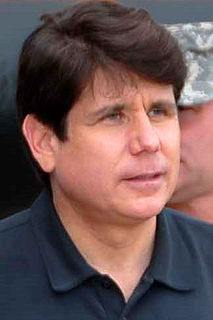A Quote by Judith M Bardwick
Leaders must (1) define the business of the business, (2) create a winning strategy, (3) communicate persuasively, (4) behave with integrity, (5) respect others, and (6) act.
Related Quotes
In business, integrity is just as important as in any of the great public offices... but I believe one of the first and fundamental obligations of competent business leadership is above all to protect the reputation and integrity of the business - to that degree the integrity of the business is the integrity of the leader.
The purpose of the capital formation presentations and roundtable discussions is to create a dialogue with business leaders, economic development organizations, business incubators, and community leaders to promote investment in Montana and support businesses as they start up and/or grow their existing operations.
It is imperative to exercise over big business a control and supervision which is unnecessary as regards small business. All business must be conducted under the law, and all business men, big or little, must act justly. But a wicked big interest is necessarily more dangerous to the community than a wicked little interest. 'Big business' in the past has been responsible for much of the special privilege which must be unsparingly cut out of our national life.
Good leaders, competent leaders must see it as primary task to create friendliness. This something within the scope of most people. Now artists, like writers and sort of course have an added option of using their scale and talent with this in view. It is their business to create an environment in which our people will prosper and be happy.
It is a matter of course and of absolute necessity to the conduct of business, that any discretionary businessman must be free to deal or not to deal in any given case; to limit or withhold the equipment under his control, without reservation. Business discretion and business strategy, in fact, has no other means by to work out its aims. So that, in effect, all business sagacity reduces itself in the last analysis to judicious use of sabotage.
If America is to compete effectively in world markets, its corporate leaders must strategically position their companies in the right businesses, and then manage their workforces in the right ways. However, the nation has a shortage of business leaders who understand the importance of utilizing human capital to gain competitive advantage, let alone the know-how to do so. In the future, that shortcoming promises to be exacerbated because few business schools today teach aspiring executives how to create the kind of high-involvement organizations.
I assumed a business like a film studio would behave like a business and still want to protect its own interests, still do the best it could to get as many people paying for as many of their movies as possible. I realized this is not actually a business about business: it's a business of egos and dominance.
Aristotle turns out to be an extremely practical guide for those asking such personally profound questions, like: What should I do next to find meaning and fulfillment in the next stage of my life?. He offers timeless advice to business people who want to be successful both at work and in their private lives. For example, he shows how business leaders can create successful organizations and, at the same time, behave ethically. Come to think of it, the CEO of Wal-Mart should study Aristotle!





































